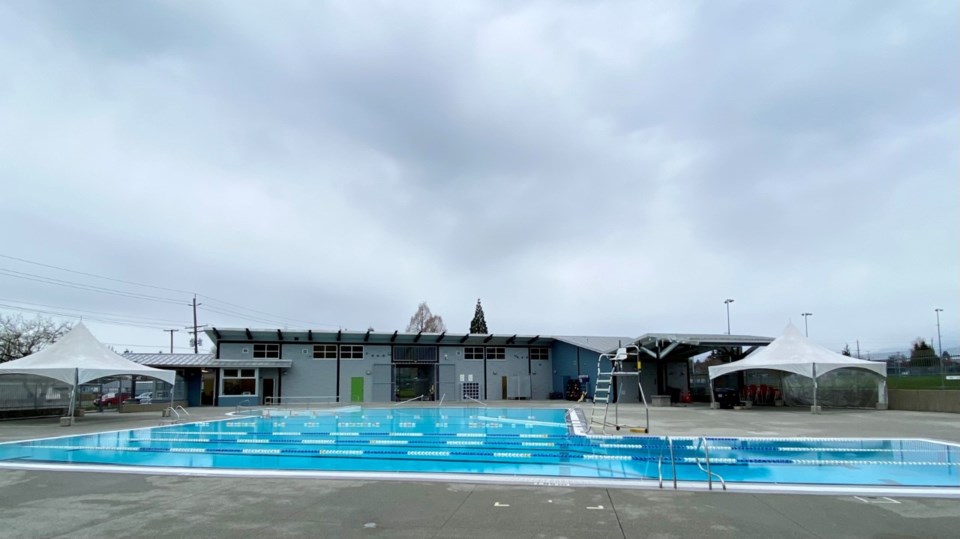A survivor of the deadliest form of skin cancer is urging community members to be safe in the sun.
Kathy Barnard, founder of the Save Your Skin Foundation, said she never dreamt that her days playing softball at Moody Park or spending time in the lake would turn deadly. But that’s just what happened.
“In 2003, I was diagnosed with the deadliest form of skin cancer, melanoma,” she said. “And by 2005, it spread to my liver, my lung, my bones, my adrenal gland and my kidney, and I was given six months to live.”
Barnard’s experience led her to start the Save Your Skin Foundation, which is dedicated to the fight against non-melanoma skin cancers, melanoma, and ocular melanoma through education, advocacy, and awareness initiatives across Canada.
Barnard spoke to council at its May 6 meeting to offer thanks for proclaiming May as Melanoma and Skin Cancer Awareness Month.
“Skin cancer is the most common of all cancers. One in six Canadians born in 1990s will get skin cancer in their lifetime,” she said. “There are more new cases of skin cancer each year than the number of breast, prostate, lung and colon cancer combined.”
According to Barnard, melanoma is now the seventh most common cancer in Canada, and is the fourth most common cancer among people aged 15 to 29.
“It is one of the few cancers with incident rates on the rise among Canadians,” she said. “Exposure to UV radiation through exposure to sunlight, tanning beds and sunlamps appears to be a major risk factor for melanoma.”
At council’s May 6 meeting, Barnard thanked the city for its proclamation and for helping to raise awareness about melanoma.
“Early detection and prevention is key to this type of cancer,” she said. “No cancer, including melanoma, can ever be prevented with 100 per cent certainty but the good news with melanoma is that the risk factors are well known, so steps can be taken to dramatically reduce your risk of developing this deadly disease. So, remember to protect yourself.”
Barnard provided some tips on how folks can help prevent skin cancer:
- Always have sunscreen with you so you can apply it whenever an unplanned outdoor activity arises.
- Use a sunscreen with an SPF of at least 30 whenever you are outdoors, even on grey, cloudy days.
- Seek out shade when the UV index is high.
- Wear protective clothing with long sleeves, hats, and sunglasses.
- Check for changes in your moles and seek medical attention if anything looks suspicious.
- Limit your sun exposure between the hours of 10 a.m. and 4 p.m., if you can.
- Avoid tanning beds.
- Get a cancer-related checkup by a doctor, including a skin exam, every three years if you’re between ages 20 and 40 and annually if you’re 40 and older.
- If you see something suspicious, see your doctor immediately.
While there are steps individuals can take to prevent skin cancer, Barnard said there are things that the City of New Westminster (and other cities) can do to protect its community.
“Incorporate a sun safety through environmental design program, which involves considering sun safety measures when constructing any new structures, parks or sport venues,” she advised. “You are also participating in our Save Your Skin sunscreen dispenser program, and we thank you for that. You have been supporting this program for the last four years.”
Visitors to various facilities, including the city’s outdoor pools, can access free, Health Canada-approved SPF30 sunscreen from dispensers.
Barnard said the Save Your Skin Foundation is dedicated to fighting non-melanoma skin cancers, melanoma and ocular melanoma through education, advocacy and awareness initiatives across Canada. It also provides support for oncology patients and caregivers through the entire continuum of care, from prevention and diagnosis to survivorship.
“We are the leading melanoma-support organization in Canada, and we collaborate with groups all over Canada and the U.S.,” she told council. “We are quite unique in that all the funds that we receive in donations at Save Your Skin go directly to patients needing financial or emotional support, whether it be parking, gas, daycare, or to accommodations and travel if needed.”
More information is available on the Save Your Skin website.




